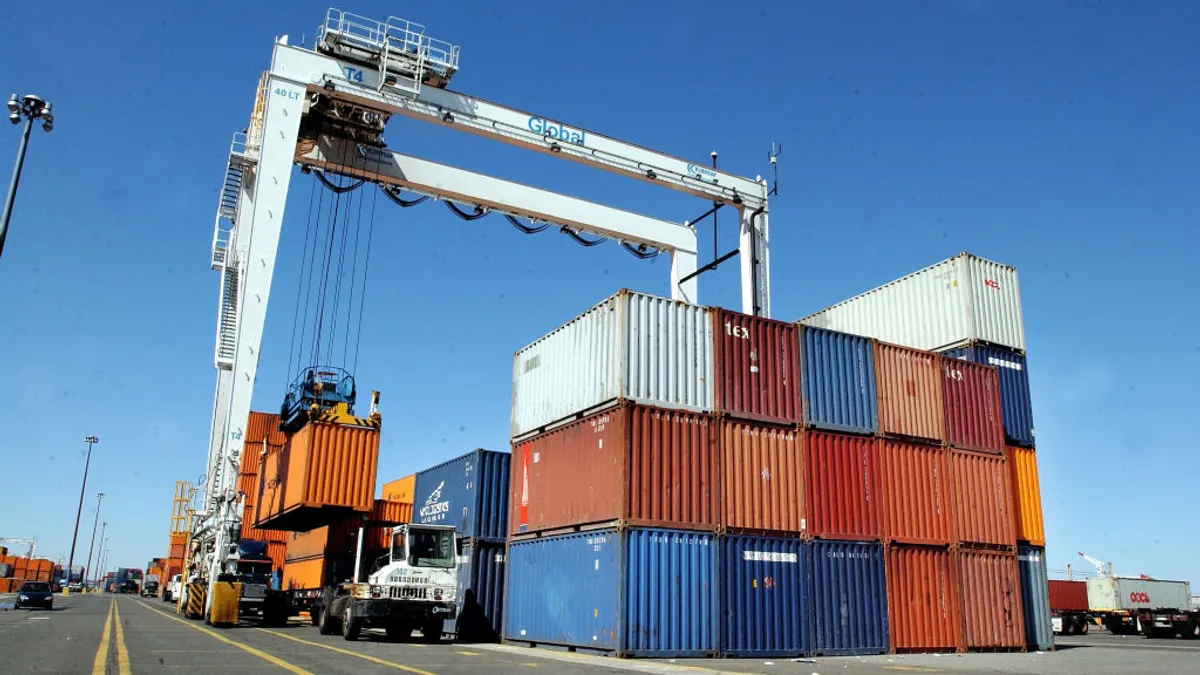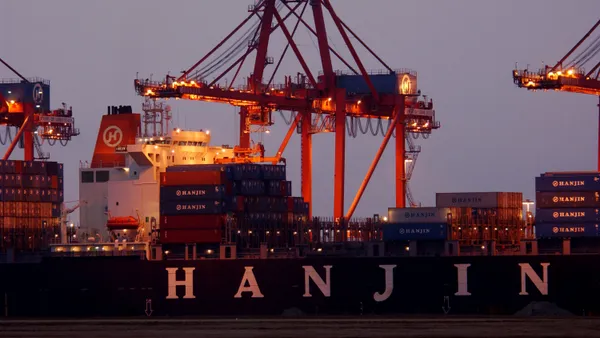Dive Brief:
- A.P. Moller - Maersk and IBM are shutting down their blockchain-enabled global trade digitization platform, TradeLens, after the solution failed to reach commercial viability, the companies announced Tuesday.
- Rotem Hershko, head of business platforms at A.P. Moller - Maersk, justified the decision in a statement by noting: “TradeLens has not reached the level of commercial viability necessary to continue work and meet the financial expectations as an independent business.”
- The companies started to “withdraw offerings and discontinue the platform” on Tuesday, with the goal of fully taking the solution offline by the end of Q1 2023.
Dive Insight:
Maersk and IBM caused a stir when they revealed TradeLens as a blockchain solution for global trade in 2018, signing up dozens of partners. Not long after its launch, others announced similar initiatives.
At the time, representatives from Maersk and IBM told Supply Chain Dive their goal was to create a tool that could start a “digital revolution” for the supply chain. TradeLens sought to create digital versions of documents, like bills of lading, that can speed transactions and, in doing so, grow global trade.
It was an ambitious mission not just for the technology, but also because, as one IBM executive said in an August 2018 statement, success “rests on a single factor — bringing the entire ecosystem together around a common approach that benefits all participants equally.”
TradeLens chased success for years, working with international institutions to set data standards, filing for clearance with regulators, and seeking to sign on as many shippers, carriers, data providers and port and customs authorities as possible.
But in the end, it never fulfilled its lofty ambitions.
“TradeLens was founded on the bold vision to make a leap in global supply chain digitization as an open and neutral industry platform,” said Hershko. “Unfortunately, while we successfully developed a viable platform, the need for full global industry collaboration has not been achieved.”
TradeLens, now, is a casualty borne from lagging adoption in a supply chain ecosystem where private data is plentiful, but often confidential or difficult to parse, integrate and share. While many other platforms — including private visibility solutions, blockchain-enabled tools and public-sector portals — have been proposed over the years, few have reached mass adoption.
Lars Jensen, CEO and partner at Vespucci Maritime, commented on the trend on LinkedIn, noting that while TradeLens was “born out of the blockchain hype” five years ago, its failure is not an indictment of the technology.
Instead, he said, “it is an indication that it is commercial usage which determines the fate of new technological initiatives and not the sophistication of the technology employed.”














